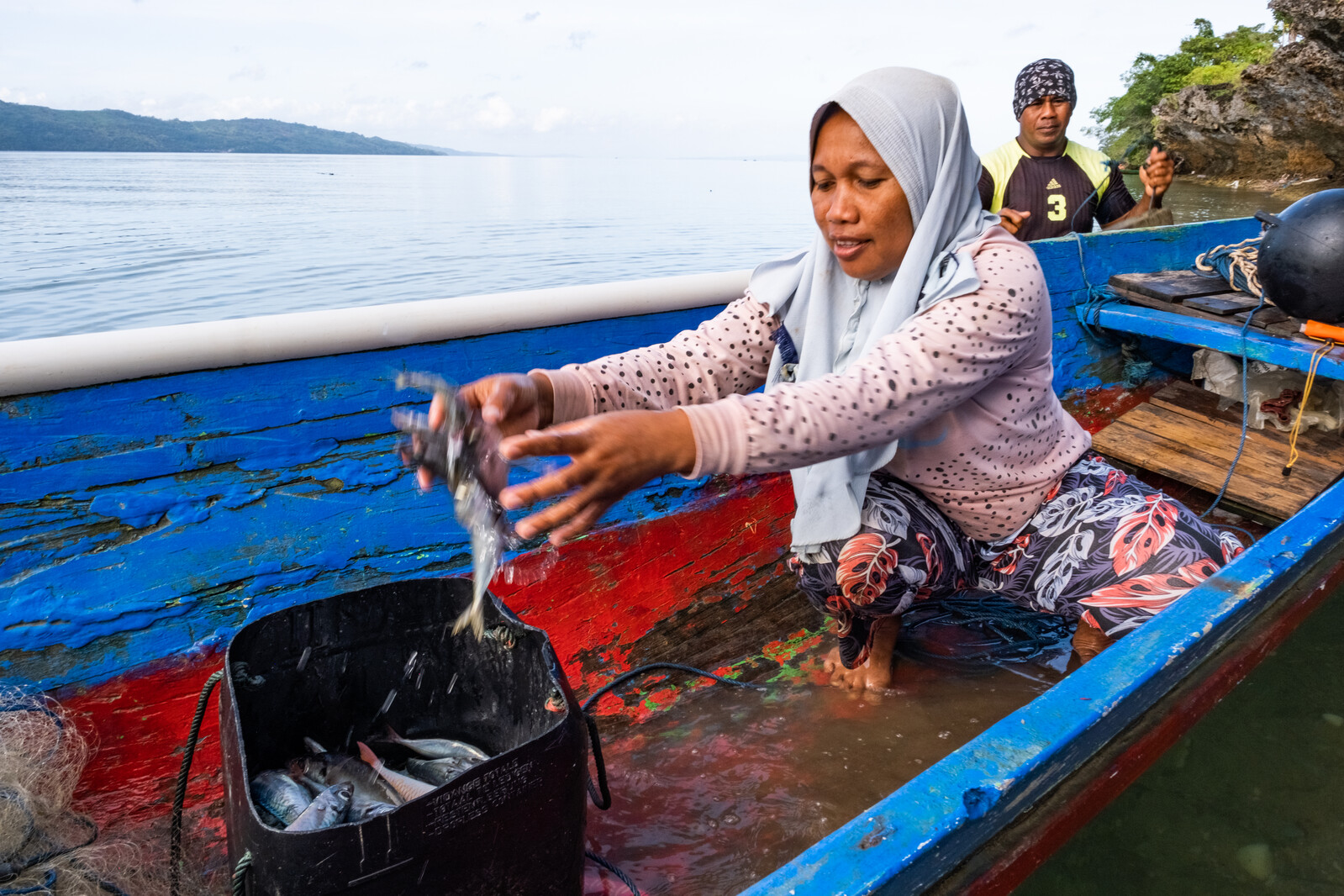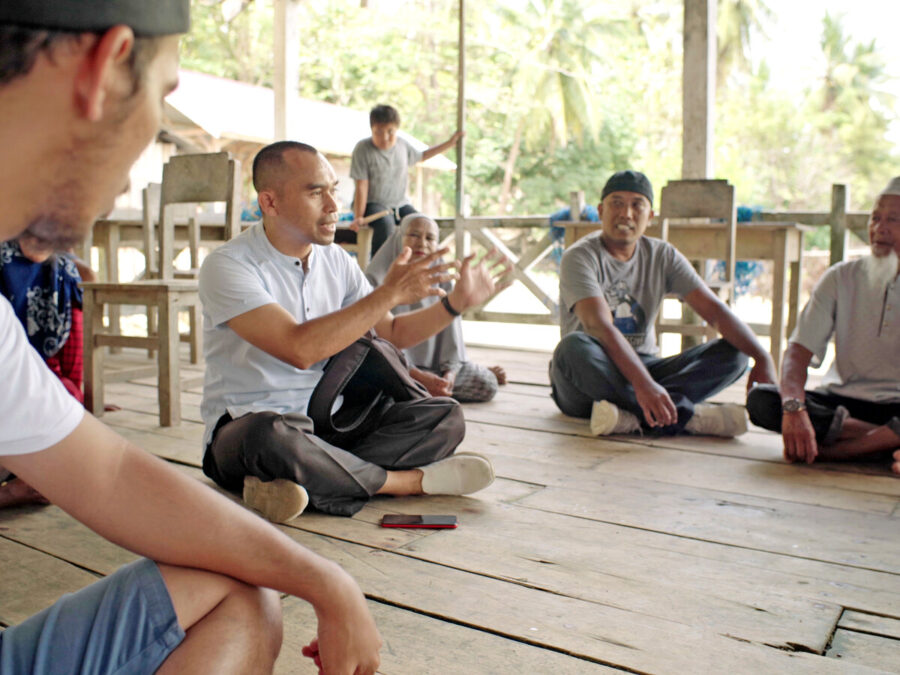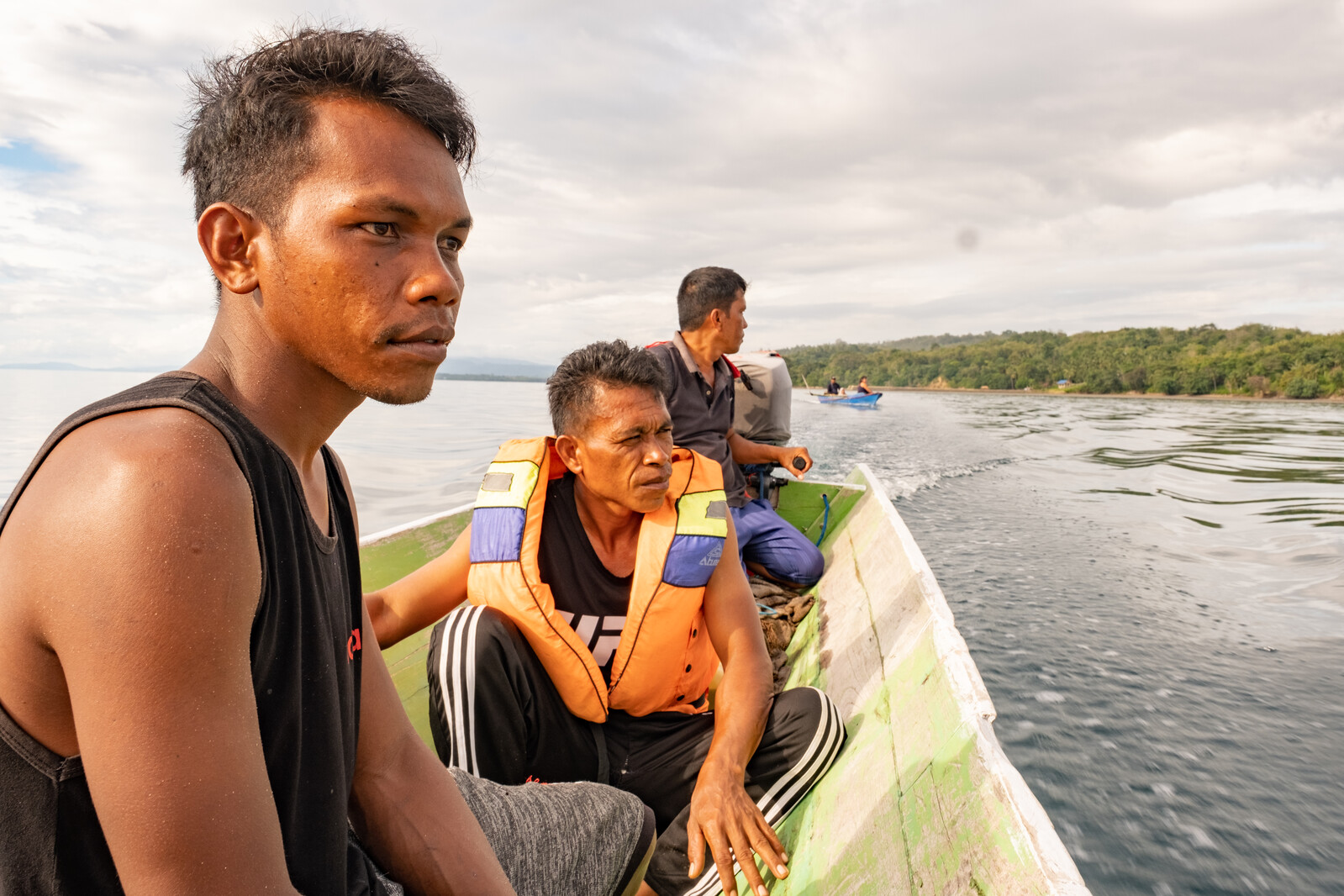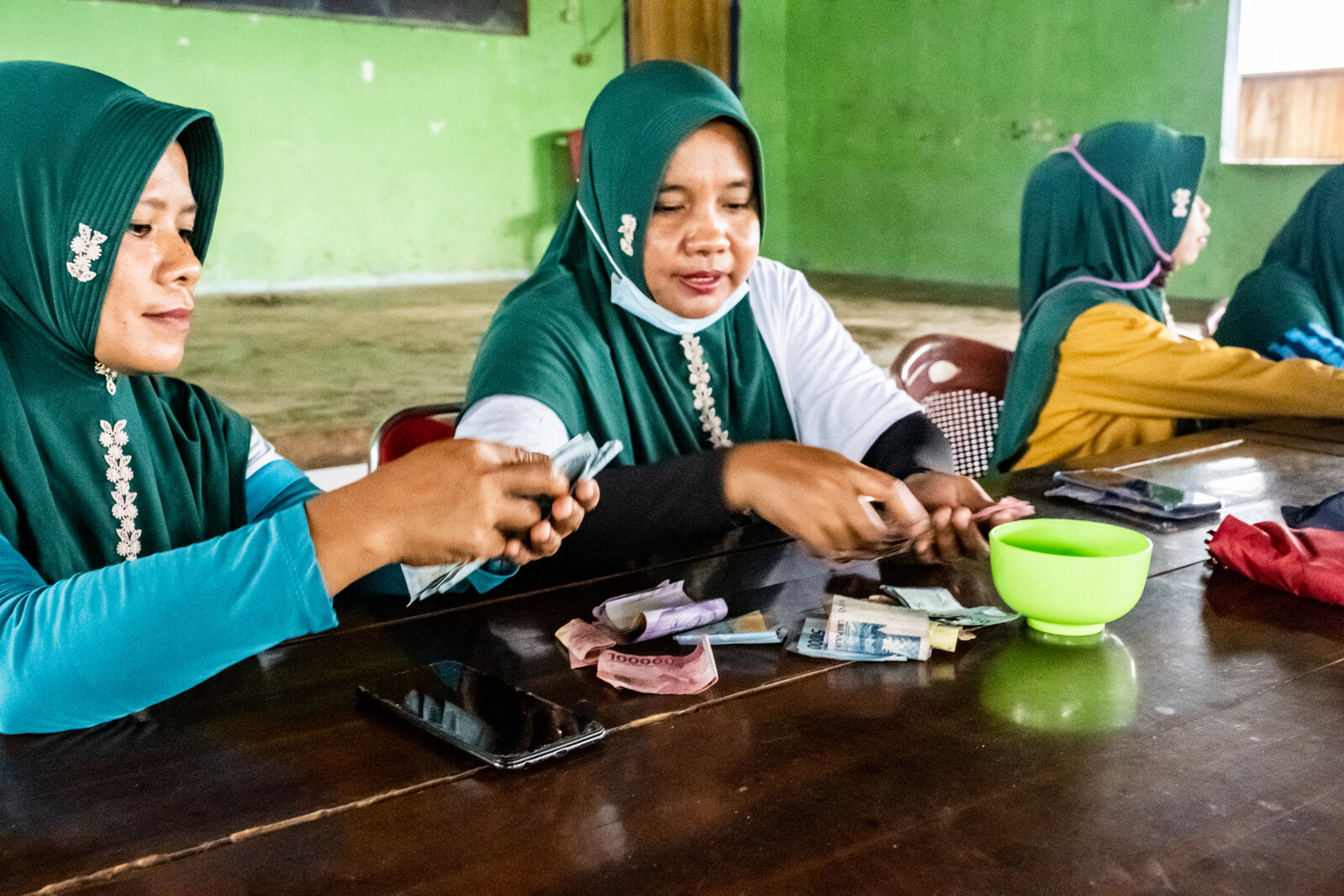Protecting Indonesia’s coastal fisheries
As the world’s largest island country—a vast archipelago made up of 17,000 islands with over 34,000 miles of coastline and hundreds of distinct ethnic and linguistic groups—Indonesia is endowed with natural richness.
80% of Indonesia’s 2.4 million fishers are small-scale coastal fishers, using small boats and simple gears to fish in nearshore areas for food and income. These fishers account for over half of Indonesia’s total wild fish production.
Declining fisheries destabilize nationwide development efforts and pose a material threat to Indonesia’s economy, as well as the food security and livelihoods of millions of people. The first to feel the impacts of these depleted resources are coastal fishers and their families and communities.

Rustian and Sugianto, wife and husband fishers, sorting their catch after net fishing off the coast of their community, Pasi Kolaga. Southeast Sulawesi, Indonesia.

La Ode Muhammad Ramadan, Government leader and community facilitator in Pasi Kolaga. Southeast Sulawesi, Indonesia.
Rare works with fishing villages and district and provincial governments to strengthen community-based coastal fisheries management of Indonesia’s provincial waters.
As a global NGO that believes in the power of people and communities to ignite social change and drive action for nature, Rare’s model helps communities manage their nearshore fisheries by first understanding what their catch is telling them about the health of their fish stock. They then help communities determine the spatial management of their fishing grounds, supporting them to designate areas for sustainable use and protected reserves where fishing is off-limits so that fish populations can regenerate and spill over into the fishing grounds.
Community members and local government representatives are recruited to become village champions and trained in behavior change approaches to build engagement and program buy-in.

La Herman, La Ege, and La Ode Sidik Idzhan patrolling and monitoring the fish reserve along the coast of Pasi Kolaga. Southeast Sulawesi, Indonesia.
Results from Peer-to-Peer Sharing
Recently, Rare has been urging village champions to talk about their approach both in neighboring villages and in provincial wide forums. As the champions share the increased income their villages have been seeing because of managing resources sustainably, nearby villages and communities have been approaching Rare and the communities directly to learn more and implement the approach.
Partnerships for Scale
In addition, Rare has identified NGOs and local organizations with existing relationships in other villages as potential partners. Because trust has been built with communities, fishery management approaches can spread more quickly than if Rare established programs in each new village.

Wa Sani (left) and Darniawati counting savings deposits being made at a savings club meeting in Pasi Kolaga. Southeast Sulawesi, Indonesia.
Investing in the environment and conserving and protecting natural resources and habitats was a key value to our founder, Margaret Cargill.
MACP supports Rare’s work as a valued partner within our Coastal Ecosystems program, helping communities in coastal ecosystems develop strategies to sustain themselves in harmony with their environment, particularly in the face of rising sea levels and other climate change impacts.
Through Rare’s scalable approaches, almost the entire Southeast Sulawesi coastline of Indonesia is projected to be under community management within the next few years.
Photos provided by Rare.